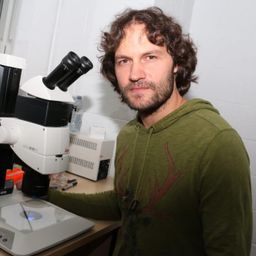Targeting muscle stem cells as a therapeutic approach for myotonic dystrophy type 1
Mon statut pour la session
Targeting muscle stem cells as a therapeutic approach for myotonic dystrophy type 1
Conte TC1, Mokhtari I2, Orfi Z1, Roussel M2, Fabre P1, Molina T1, Dort J1, Pellerito O1, Beauséjour C1, Duchesne E2, Dumont N1
1- CHU Sainte Justine, Montreal, QC, CANADA,
2- Université de Québec à Chicoutimi, Chicoutimi, QC,
CANADA.
Myotonic dystrophy type 1 (DM1) is the most common adult-onset muscular dystrophy. Its prevalence can vary from 1/10.000 to 1/100.000 affected individuals, whereas in Saguenay region of Quebec, its carrier rate can reach 1/475 due to a founder effect. Despite the recent advancements in the biomedical field, patients with DM1 still have no curative treatment. Affected individuals experience myotonia, progressive muscle weakness and atrophy. Muscle stem cells (satellite cells, MuSC), which are responsible for skeletal muscle development, growth, and repair in adults, are also affected in this disease. In DM1, satellite cells/myoblasts exhibit premature senescence, decreased proliferative capacity as well as delayed differentiation and fusion into myotubes. Here we propose the use of new compounds targeting defective stem cells that has shown encouraging results improving the pathologic state of several chronic diseases to date. We hypothesize that these compounds will eliminate defective MuSC, which will promote myogenesis and improve muscle function. We propose to test the efficacy of these agents using primary cells from DM1 skeletal muscle biopsies and a mouse model of DM1. We have established the primary myoblasts lines of twelve DM1 patients and fifteen controls. By staining these lines with the senescent-associated marker (SA)-B-Gal, we confirmed that DM1 patients’ cells present increased numbers of senescent cells when compared to controls. Other senescence markers like p16INK4a and p21 are upregulated in DM1 patients’ cells. This study will provide important advances to patients affected by DM1 who have very limited pharmacological options to improve their quality of life.

